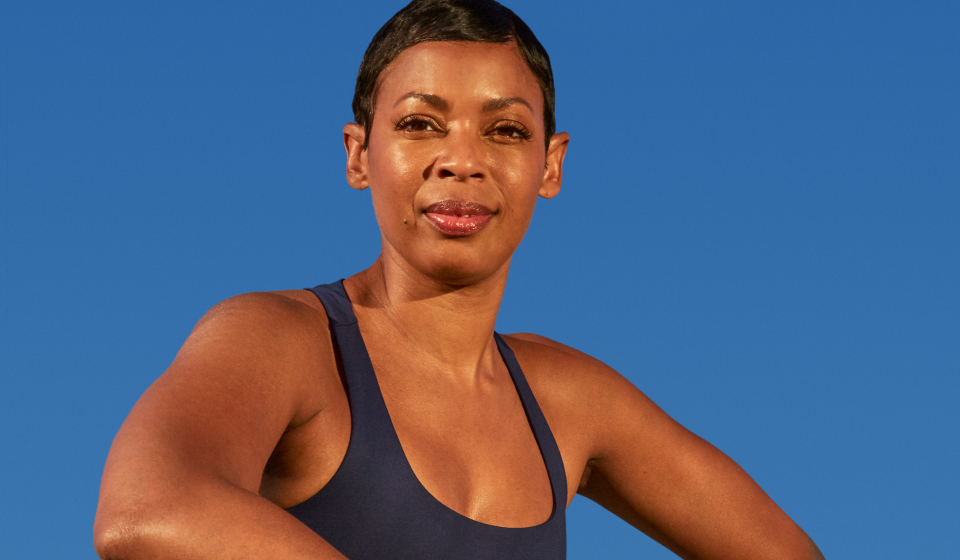For many, it’s a time of unparalleled emotional freedom; the kind of resilience and enlightened POV that only seems to ripen with age. It’s the way Susan Feldman, the founder of One Kings Lane and “age-defying” platform Get in the Groove, describes her own experience. “Once we get through those changes and come out the other side, I think our perspective on many things changes,” she says. “I believe you think differently about how you prioritize what you want to do. You find the strength to say no more often. You’re energized by all the new things you engage in.”
Dr. Heather Silvestri, PhD, a New York City-based psychologist, suspects that this way of thinking is a natural byproduct of the menopause experience. “[You’re] liberated from the pressures and strictures of your reproductive years,” she says. “This allows a woman to capitalize on the relative spaciousness of her post-menopausal status to fashion a more open, fluid sense of herself,” she says.
Think of it this way: For so many of us, getting a period is so routine that it might be easy to overlook just how much physical and emotional capital we pour into our own menstrual cycle each month—not to mention the general pressures of fertility and womanhood at large, whether we choose to have children or not. As emotionally complicated as it might be to age out of this experience, imagine suddenly having the freedom to retrain that time and energy into ourselves. That might just be the crux of “zest.”*
Laying the foundation
It’s important to denote that menopause itself is a highly personal experience—and as such, coming “out the other side” (as Feldman describes) is hardly one-size-fits-all. “A woman’s experience of menopause is absolutely shaped by her personal mental set, constellation of life experiences, and culturally salient ideas about women and aging, as well as her individual bio-physio blueprint,” says Dr. Heather Silvestri, PhD, a New York City-based psychologist. “The good news? You have tons of agency over large swaths of your menopause experience.”*
Silvestri notes that among her menopausal and postmenopausal clients, those who have the most productive experiences approach the transition with a sense of openness and even curiosity. “The more a woman sees menopause as a natural inflection point in her journey as a woman, the more she can cultivate the experience and curate her post-menopausal life,” she says.
It’s not necessarily easy, especially in a world that still sometimes imbues menopause with negative connotations. So, how do we cultivate a sense of optimism that can carry over into postmenopause? There are a few psychological tools worth cultivating. Silvestri recommends engaging in a variety of self-care techniques in an effort to self-reflect and see what feels most helpful. “All the usual suspects of adaptive living apply: regular, moderate exercise; fashioning a gratitude practice; journaling; mindfulness and meditation, intuitive eating,” she says. “Really any activity that cultivates your ability to be present and to feel empowered in your momentary and daily experience gives you enormous bang for your buck.”*
As for Feldman, confiding in others made all the difference. “For those that are having trouble navigating all of these changes, I would say try to find a few friends that can help support you through this time,” she says.
A renewed sense of self
In addition to seeing a variety of clientele in their menopausal and postmenopausal years, Silvestri herself is 47—and has found herself anticipating menopause in a very positive, unapologetic way. “Why shouldn’t my body look like it gestated and delivered three big beautiful babies? Why shouldn’t my face look like I’ve laughed a ton and frowned a bunch? It’s funny—during my forties I have cultivated a pretty thoroughgoing passion for vintage clothes and furniture. The psychologist in me thinks this is all a terrific metaphor: I honestly endeavor to be just like a fabulous mid-century sofa or pair of amazingly flared early 1970s silk pants rendered utterly special, not in spite of, but because of their rich history and lived experience.”
References:
- Schwaba, T., Robins, R., Sanghavi, P. H., & Bleidorn, W. (2019). Optimism Development Across Adulthood and Associations with Positive and Negative Life Events. doi: 10.31234/osf.io/s6x87
- 'Creativity peaks in your 20s and 50s'. (2019, April 27). Retrieved from BBC










